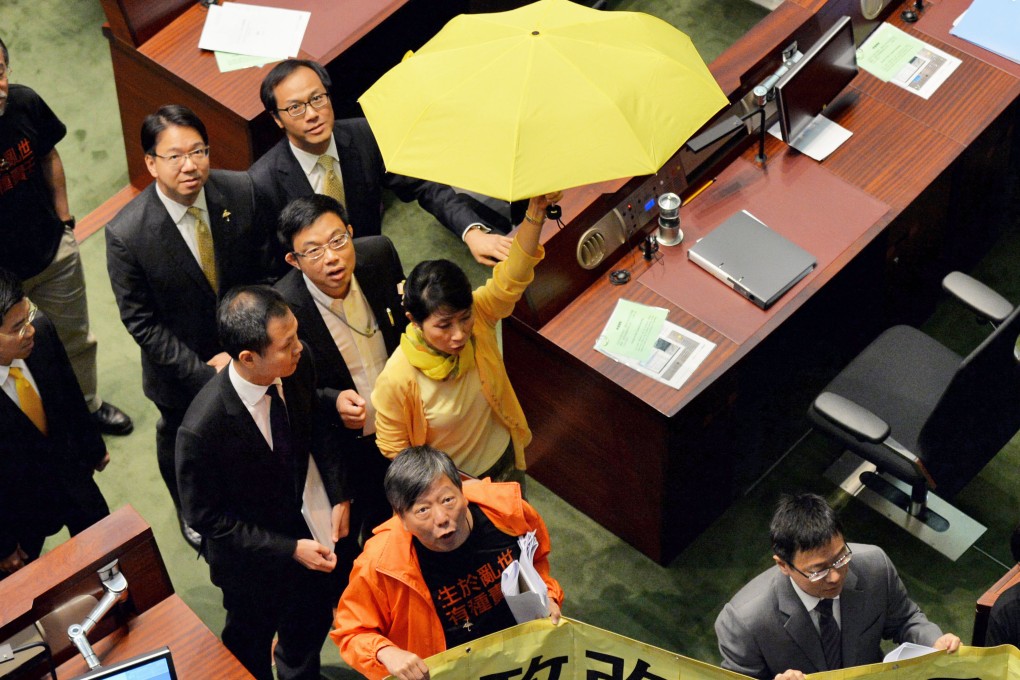Reckless drive for democracy would only derail Hong Kong
Regina Ip says the veto on reform will stall HK's democratic development for now - and that may actually be a better path for us than the one favoured by pro-democracy radicals

The bizarre events of the past 10 days fully confirm the saying that, in any crisis, the "unknown unknowns" are the most difficult part to handle.
For weeks prior to the historic vote in the Legislative Council on a chief executive election by universal suffrage, the police had been on high alert. For the first time since a security warning system was put in place in May, a yellow signal was activated and officers were stationed inside the Legco building ahead of the vote.
It is hard to blame the police or the Legco secretariat staff for overrating the threat - violent attempts to storm the building had been made in the past year amid large-scale congregations of crowds.
Moreover, just a few days before the vote, explosives, airguns and shotguns were found in hideaways in the New Territories. Ten people, including at least one identified as a member of the "National Independent Party", were arrested on suspicion of conspiring to manufacture explosives. It was as though, 410 years later, a version of England's "gunpowder plot" was to be played out in Hong Kong.
In the event, there were few sparks of anger or recriminations in the debate in Legco, which wound down much faster than expected. As widely anticipated, with 28 legislators voting against it, the government motion failed to secure a two-thirds majority.
While the veto was to be expected, by a highly unfortunate mishap, the voting ended with a whimper as 33 pro-establishment legislators failed to cast their votes after staging a last-minute walkout from the chamber in a failed attempt to stall the vote. For more than a week, the voting fiasco overshadowed all other news coming out of the historic veto.